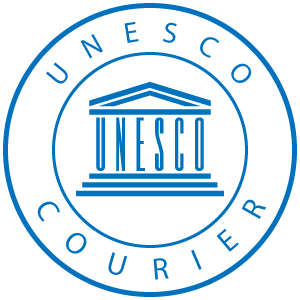
The New world of the ocean
Fuelled by the sun, the ocean is the powerhouse of the earth; the source of all life, it is a huge heat exchanger that regulates our climate, it is a source of food, minerals and energy, it offers the cheapest form of transport available to us, and, last but not least, with its restless, ever-changing beauty it seems to have been designed for the delight of mankind.
Today, scientists and world leaders are looking more and more to the ocean from which we came as a reserve from which to meet the needs of a growing world population. If the potentially huge resources of the ocean are to be properly exploited for the benefit of all mankind, a major international co-operative effort involving scientific research, economic assessment and the institution of acceptable control mechanisms is required. It is with these problems that this issue of the Unesco Courier is chiefly concerned.
In all this Unesco has a major role to play. For years Unesco's Marine Sciences Division has been working to strengthen the research institutions and training capability of developing countries through programmes such as COMAR (Major Interregional Project on Research and Training leading to the Integrated Management of Coastal Systems). The Intergovernmental Océanographie Commission (IOC), founded twenty-five years ago under the aegis of Unesco, has been concerned with such tasks as the planning, promotion and co-ordination of co-operative international research, for example, in the fields of ocean dynamics and climate, and the preparation of the General Bathymétrie Chart of the Oceans. With the adoption in 1982 by the General Assembly of the United Nations of the Convention on the Law of the Sea, the responsibilities of the IOC are destined to be greatly increased.
It is a startling fact that in many respects we know more about the moon than we do about the vast mass of water that covers over two-thirds of the surface of our planet. Now more than ever before the time is ripe for a combined international exploration of "the last frontier".
Editor-in-chief : Edouard Glissant


